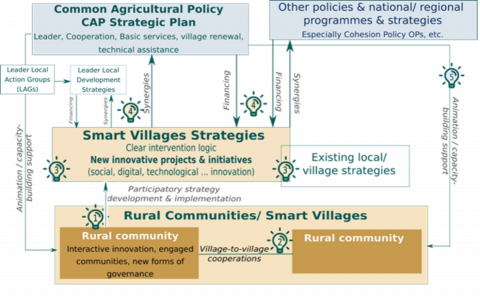Key learnings of the webinar on Smart Villages
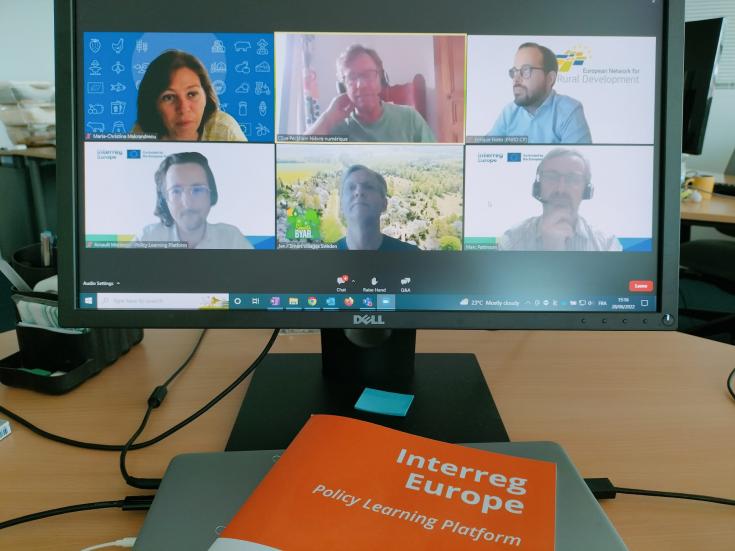
On Tuesday 28 June 2022, the Policy Learning Platform held a webinar on the topic of Smart Villages. The webinar explored the concept of Smart Villages which are communities in rural areas that use innovative solutions to improve their resilience, building on local strengths and opportunities to support rural development.
They rely on a participatory approach to develop and implement their strategy to improve their economic, social and/or environmental conditions, in particular by mobilising solutions offered by digital technologies. Smart Villages benefit from cooperation and alliances with other communities and actors in rural and urban areas. The initiation and implementation of Smart Village strategies may build on existing initiatives and can be funded by a variety of public and private sources (ENRD).
The EU Rural Review on Smart Villages shows that these initiatives are often driven by a growing concern for the major societal challenges affecting rural areas such as ageing and depopulation as well as access to services. At the same time, there is increasing recognition of the need to enable rural communities to make the most of new opportunities offered by digital transformation, the transition to a low-carbon and circular economy, new forms of urban-rural linkages, and emerging value chains.
These topics and challenges have been explored in different Interreg Europe projects, and this webinar featured good practices and lessons from ERUDITE that seek to enhance rural and urban digital innovation territories and CARPE DIGEM promotes digital innovation ecosystems in peripheral and emerging regions in Europe.
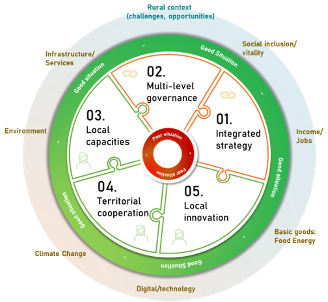
Figure 1: Enabling factors for rural revitalisation. Source: Enrique Nieto (ENRD).
Image
Figure 2. Smart Villages funding. Source: Maria-Christina Makrandreou (European Commission, DG AGRI)
Explore the agenda below to jump to sections of your interest.
00:00:24 Introduction by Arnault Morisson and Marc Pattinson, thematic experts of Research and innovation
00:12:35 Keynote speech by Maria-Christina Makrandreou from DG AGRI on the latest insight in Smart Villages
00:27:55 Q&A: You mention the urban-rural dimension, did COVID-19 and green societal challenges cause any adjustment to the calls?
00:32:23 Presentation by Enrique Nieto from European Network for Rural Development on latest insights in Smart Villages
00:45:58 Q&A: You mention social challanges on e.g. fuel and food, are these issues that you can offer policy recommendations for?
00:50:39 Video showcasing and presentation by Clive Peckham from on CARPE DIGEM and ERUDITE on Lormes Smart Village
00:58:11 Q&A: How has the COVID-19 crisis affect the project in Lormes?
00:59:31 Q&A: Are there awareness raising actions for those who are not involved in the project?
01:01:50 Presentation by Jan Malmgren from Smart Villages Project in Veberöd, Sweden on Smart Villages Stategy
01:11:17 Q&A: What intiative is the most appreciated by the local habitants?
01:12:19 Q&A: You involve a lot of young people, are there any specific intiatives to get this group on board?
Panel discussion
1:13:48 Q&A: How do you offer young people university education in rural areas?
01:16:38 Q&A: What lessons can you share from European Network for Rural Development on the rural education dimension?
01:19:14 Q&A: In the agricultural sector, do you see new trainings or need for new skills?
01:23:52 Q&A: Another dimension is gender, how do women play a role in your smart villages?
From this webinar, we can highlight some key insights for local and regional policymakers:
- Rural areas and Smart Villages can be testbeds and places for experimentation to respond to complex societal challenges. The concept of a Smart Village is a process that must be planned. This requires policymakers to design and implement integrated strategies to respond to place-based challenges as demonstrated by the good practices of Lormes Smart Village in France and Veberöd in Sweden.
- Smart Villages need bottom-up community participation and top-down innovative solutions. The European Commission is providing top-down directionalities and opportunities such as with Smart Rural 21 and Smart Rural 27 offering capacity-building support for implementing the concept of Smart Villages as part of integrated rural development strategies.
There are many funding opportunities to foster Smart Villages (CAP 2023-2027 such as —Cohesion Policy-Policy Objective 5: a Europe closer to citizens, European Regional Development Fund (ERDF), European Territorial Cooperation (ETC), European Maritime, Fisheries and Aquaculture Fund (EMFAF), Horizon Europe), Leader Programme.
- Identifying and working with agents of change, such as recognized local “ambassadors” or key groups such as young people, to foster bottom-up community involvement and local engagement have a transformative role for building Smart Villages and identifying the most pressing policy issues.
- Smart Villages initiatives can also be part of the policy response to deal with population growth, housing stress and/or migration from urban areas as a result of the growth in COVID-led remote working trends
Access the presentations from the webinar below.
Explore more information below.

The role of spaces for innovation: key learnings
How can physical spaces be an anchor for innovation? Read more about it in this article!
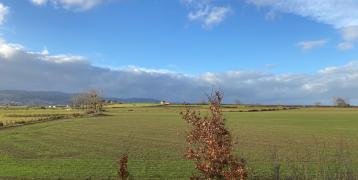
Smart and green local agri-food value chains
Explore the key learnings, presentations and the recording of our #EUGreenWeek webinar on Smart and green local agri-food value chains!
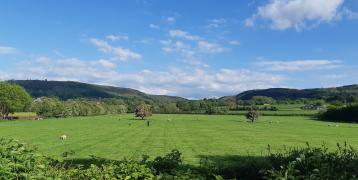
Approaches for a rural low-carbon economy
Explore regional approaches that can help you support e-mobility and the transition to a low-carbon transition in your region!

